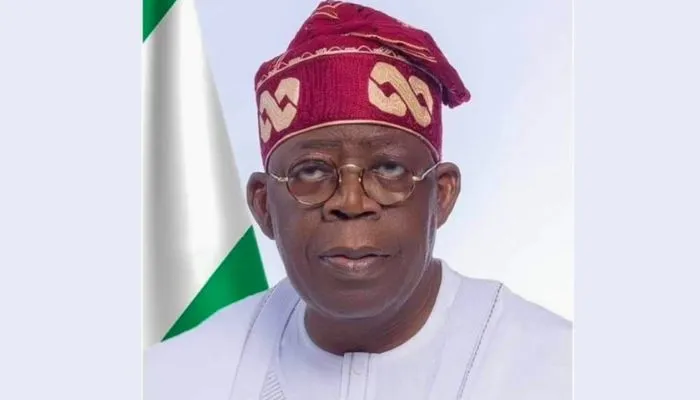Nigeria’s newly-elected President, Bola Ahmed Tinubu, was sworn into office on Monday, May 29, 2023. The ceremony took place at the 5,000-capacity Eagle Square venue in the capital, Abuja, with tight security measures in place. A national public holiday was declared, and Nigerians without an invitation were advised to stay away from the ceremony due to fears of unrest and opposition parties disputing the election results.
Inaugural Speech and Promises
In his inaugural speech, President Tinubu described his swearing-in as a “sublime moment” and acknowledged the hardships that Nigerians have endured. He also promised to announce his cabinet in a matter of days or weeks. Tinubu’s election win accounted for just 37% of the votes, making it the lowest percentage for any elected Nigerian president since the handover from military to democratic rule in 1999. As a result, the hashtag #Tinubunotmypresident started trending on social media during his inauguration.
First Appointments
Following his swearing-in, President Tinubu made his first appointments, which included:
- Ambassador Kunle Adeleke as the State Chief of Protocol (SCOP) to the President
- Dele Alake as the Spokesman to the president
- Olusegun Dada as Special Adviser on Digital Media
These appointments are seen as crucial for keeping the wheels of government moving, pending other appointments that require the seal of the National Assembly.
Speculations and the President’s Strategy
Despite various speculations surrounding potential appointees, sources close to President Tinubu have revealed that he has kept the list secret, even from his allies and close associates. This strategy has led to intense anxiety among those lobbying for positions in the new administration.
Possible Cabinet Members
Names mentioned as likely to play roles in Tinubu’s cabinet include:
- Speaker of the House of Representatives, Mr. Femi Gbajabiamila
- Minister of Works and Housing, Mr. Babatunde Fashola
- Governor Nasir el-Rufai of Kaduna State
- Mr. James Faleke, a federal lawmaker from Lagos
It has been reported that el-Rufai, alongside two other outgoing governors – Aminu Masari of Katsina State and Atiku Bagudu of Kebbi State – are in the race for the office of the Secretary to the Government of the Federation (SGF). Former Governor Kayode Fayemi of Ekiti State is also said to be highly favored for the External Affairs portfolio.
Ondo Ministerial Slot Contenders
Four persons are reportedly in strong contention for the ministerial slot for Ondo State:
- Chief Olusola Oke, a Senior Advocate of Nigeria (SAN)
- Mr. Lucky Aiyedatiwa, a former Deputy Governor
- Hon. Tajudeen Adeyemi Adetisoye, outgoing member of the House of Representatives (Idanre/Ifedore Federal Constituency)
- Prince Ademola Adegoroye, a member of the outgoing federal cabinet
Challenges Facing the New Administration
Deep Divisions and Legal Challenge
President Tinubu faces significant challenges as he assumes office. Nigeria’s longstanding ethnic and religious divisions became even more polarized during the February polls, leading to violence and concerns about irregularities and alleged attempts to disenfranchise voters. A legal challenge to the election result, launched by Tinubu’s political rivals, is ongoing. Despite this, Tinubu has vowed to unite the nation and implored those who did not support him to rally behind his agenda.
Economic Revival
Reviving Africa’s largest economy is another critical challenge for President Tinubu. Nigeria has debts of around $103 billion, unprecedented levels of inflation, high unemployment, and a heavy reliance on dwindling oil revenues. This has led to a brain drain crisis known locally as “japa,” or escape. Political analyst Remi Adekoya believes that the key to solving most of Nigeria’s major issues lies in Tinubu’s ability to kickstart the economy and improve the country’s finances.
Social Problems
Nigeria faces multiple social problems, including inadequate access to education and healthcare systems, widespread poverty, and gender inequality. The new administration must work to build the “political and social capital” required to address these issues, according to analyst Rolake Filani-Akinkugbe.
Security Concerns
Nigeria has been plagued by insurgencies, banditry, and communal conflicts that pose significant threats to the nation. Confronting insecurity remains a paramount challenge for Tinubu’s administration. During his inaugural speech, Tinubu vowed to make security “the top priority of our administration because neither prosperity nor justice can prevail against insecurity and violence.” He also promised to invest more in training and security equipment.
Expectations for a Competent Cabinet
Political analyst Remi Adekoya expects President Tinubu to appoint a competent cabinet quickly, unlike his predecessor who took six months to form his government. Tinubu is seen as a pragmatist who can spot talent and promote them accordingly.
Conclusion
The hopes and aspirations of millions of Nigerians now rest on President Tinubu’s shoulders as he embarks on the arduous path to progress. The Nigerian people eagerly await the transformative leadership that Tinubu and other successive leaders have promised, hoping for a brighter future under the new administration.


